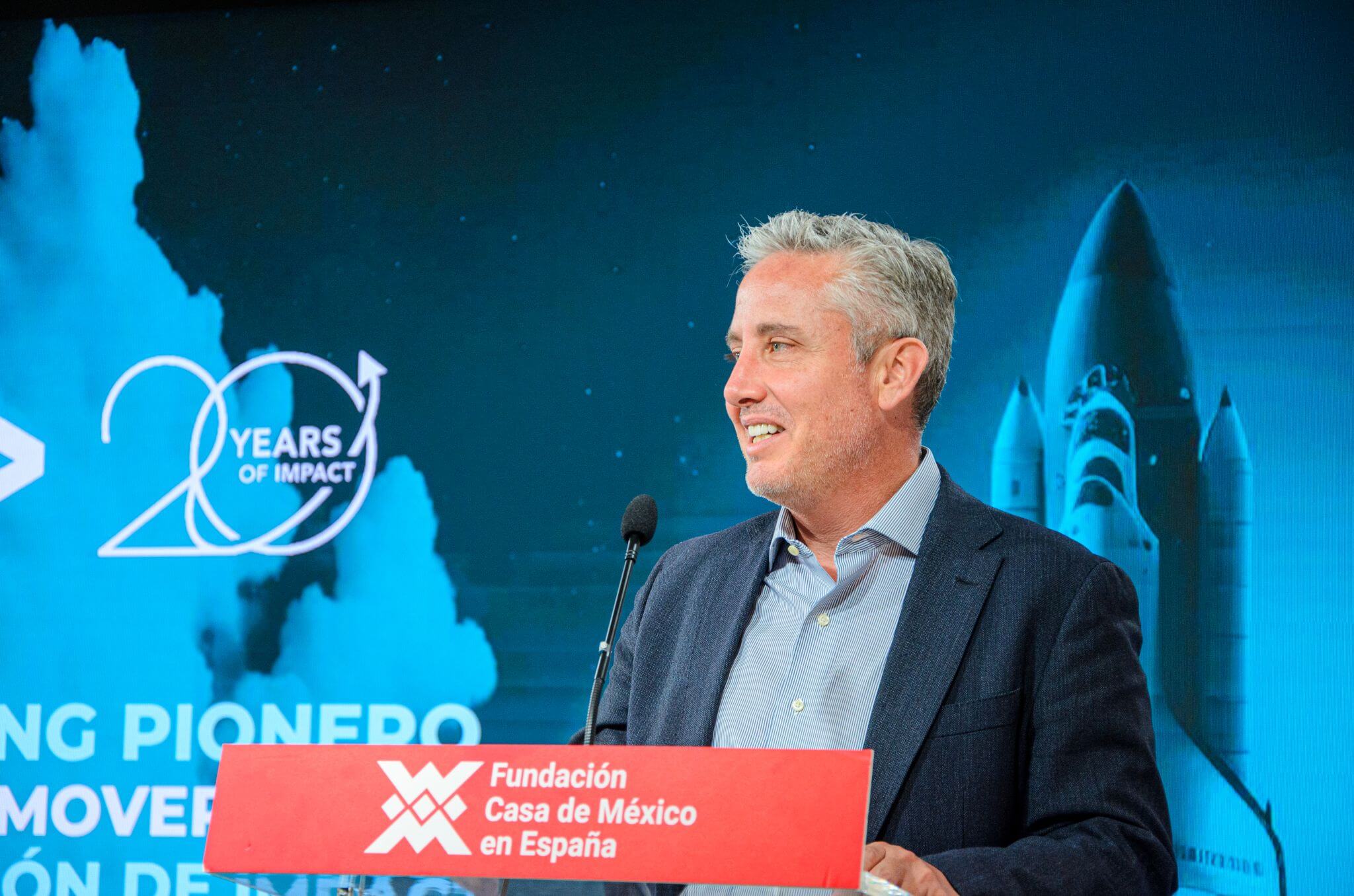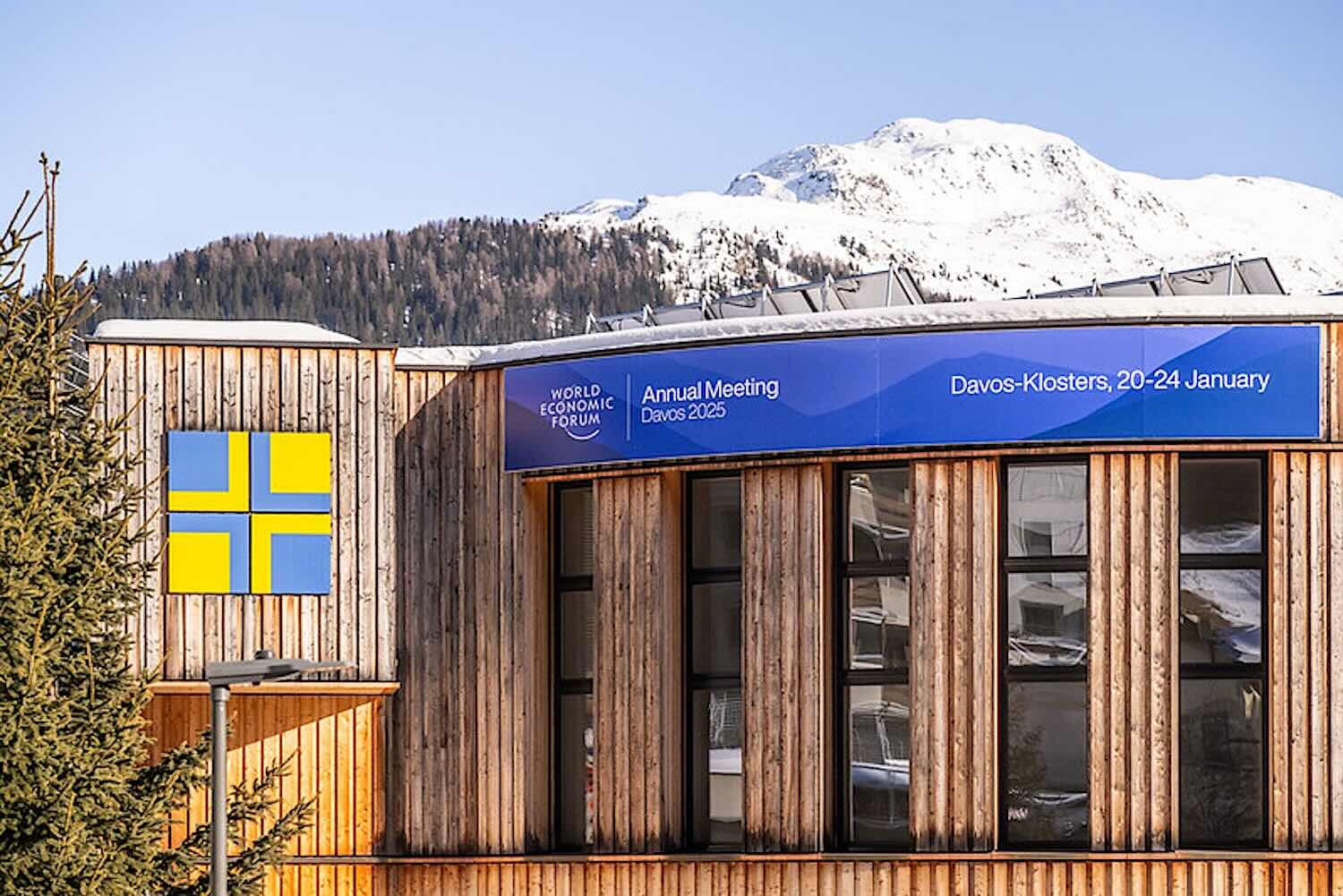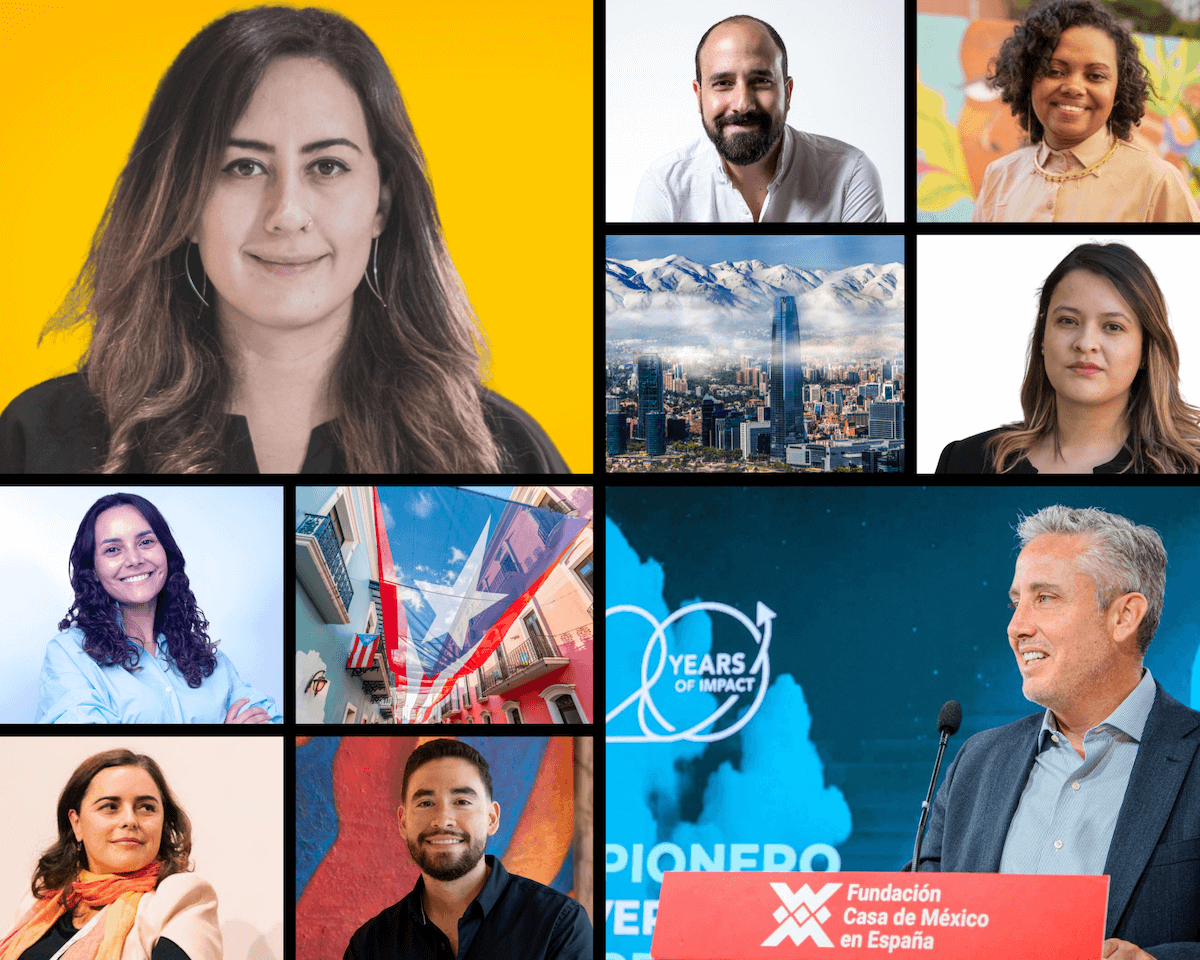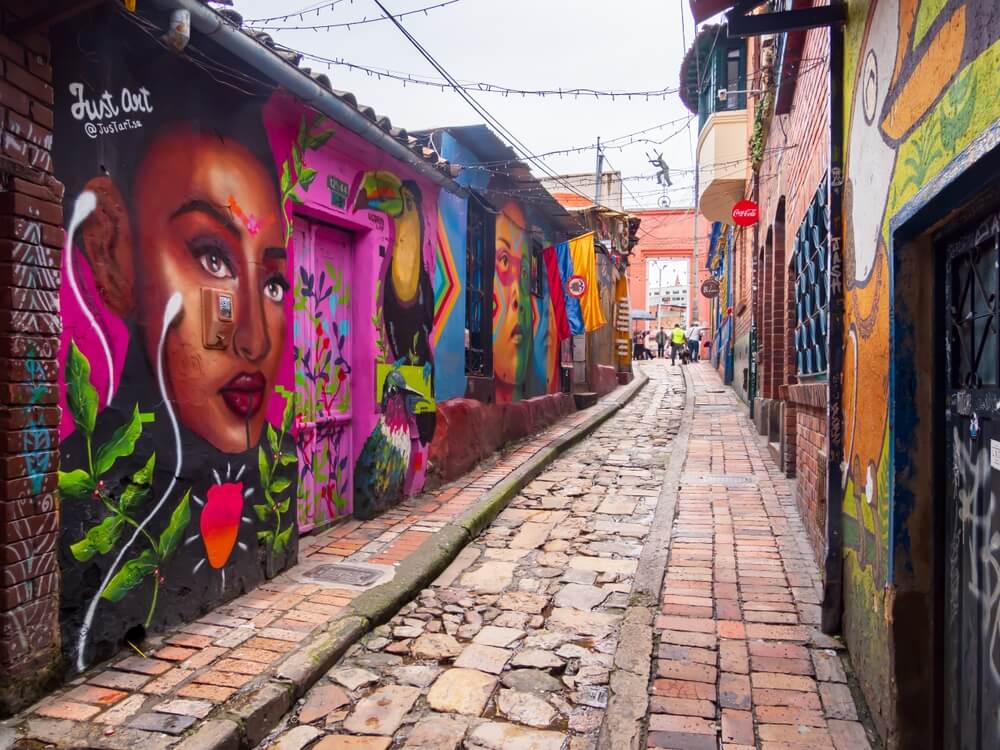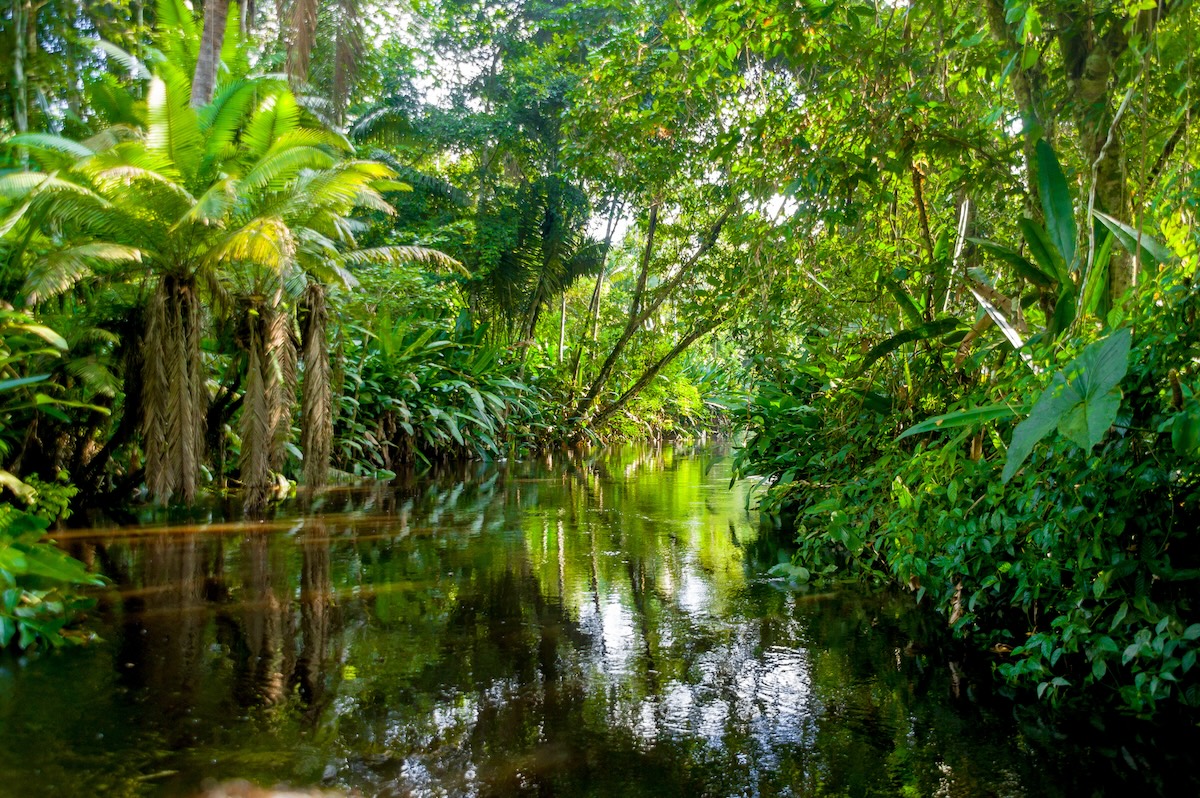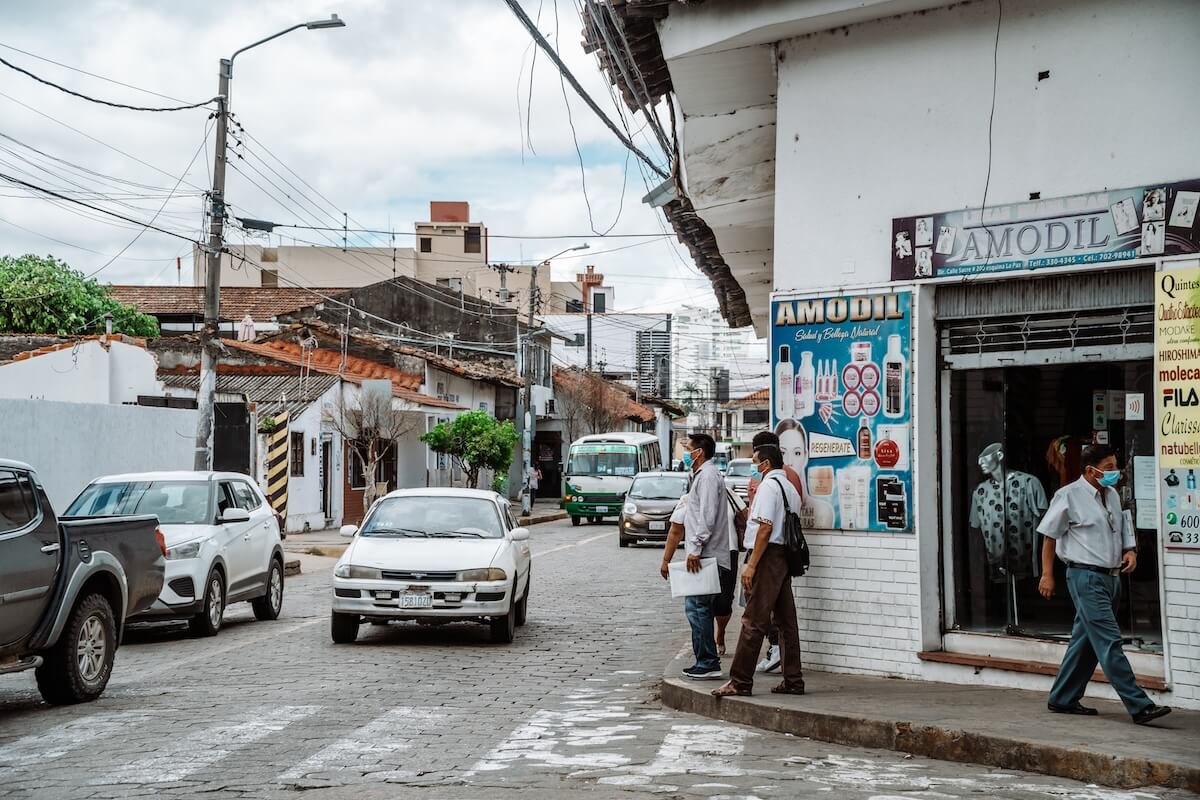Many impact fund managers seek scale by raising ever-bigger funds. To deepen its impact, Mexico City-based New Ventures is instead going niche, with specialized financing vehicles for companies tackling specific challenges.
New Venture’s new Empodera Fund is raising capital to provide flexible funding for healthcare solutions for women across Latin America. Among the mandates of Viwala, New Ventures’ lending facility, are financing solutions for transgender-led companies in Mexico, and innovative ventures conserving and restoring oceans and coral reefs.
And the first thematic fund of New Ventures Capital, which will manage a family of venture funds, has backed more than 10 early startups with tech solutions for youth wellbeing.
“One of the things I like about getting into a specific problem is that you aren’t talking about the impact investing industry. You are talking about the ocean industry, or the health industry,” New Ventures’ Rodrigo Villar told ImpactAlpha as the fund manager celebrated its two decades of building out the Latin America impact investing ecosystem.
“The impact industry is a perception, an ideology. I don’t know if it’s ever going to penetrate the traditional markets. If you go niche, then you can do that. You can break those barriers in a better way.”
Building an ecosystem
New Ventures began in Mexico City as one of the region’s first accelerators of social and environmental entrepreneurs. It raised over $60 million across two funds with Adobe Capital before selling the revenue-based finance fund manager to Deetken Impact in 2021.
At one point, the entrepreneurial team was circulating over 150,000 print copies of a publication called Las Páginas Verdes, introducing thousands of companies with sustainable products to customers in Mexico and Colombia.
Today New Ventures runs about a dozen accelerators a year, with a team of 20 analysts building company pipelines in cities including Bogotá, Quito and Buenos Aires. It supports roughly 250 companies annually from a pool of about 2,000.
Each year at New Ventures’ Foro Latinoamericano de Inversión de Impacto, or FLII, more than 1,000 investors and other practitioners cut deals and swap best practices.
Intentionality and innovation
Villar says too much impact capital in Latin America is flowing to managers that lack intentionality around impact and meeting the needs of the growing market for social and environmental entrepreneurs. The industry, he says, must grow beyond private equity funds. “You need financial institutions, you need debt facilitators, you need warranties. We need to build a much more complex ecosystem.”
Villar and his team found that “the larger the fund, the further we got from the real problem and from the dealflow.” Issue-agnostic funds, he added, compete to raise capital from “the usual suspects,” including the development finance institutions and pension funds.
Specialized funds targeting specific problem sets instead “can be designed with the right size, the right people, the right financial mechanism and the right LPs,” continued Villar. The problem-focus strategy “opens up a lot of doors.”
Read ImpactAlpha’s full Q&A with Villar, edited for length and brevity:
ImpactAlpha: You’ve taken your 20-year celebration on the road. What are you celebrating most about New Ventures?
Rodrigo Villar: New Ventures is known to be a seeder company for a lot of positions out there. Usually employees of New Ventures are really well regarded. So we are focusing the celebration on all of the present staff and the past staff that have gone through New Ventures. We have spread out a lot. We are no longer just a Mexico City-based organization. We are spread out across the region. We have an office in Buenos Aires. We have an office in Bogotá. And one in Quito, Ecuador. A couple of other staff are spread out throughout the world. We felt that we didn’t feel comfortable doing a big party in Mexico City and leaving behind all those important pieces of New Ventures. We decided to celebrate with the ecosystem we built in the different regions where we work.
ImpactAlpha: So where have you been?
Villar: We had our first one in Madrid. And we had the second one in Buenos Aires a couple of weeks ago where you were there. We’re having our next one in August in Bogota. And we are expecting to do another one in Ecuador and of course Mexico City. And we are expecting to do something around SOCAP with our partners we have in the US.
ImpactAlpha: If you look back over the 20 years, what have you been able to accomplish at New Ventures?
Villar: We recently were talking with partners of New Ventures and we were planning to get together to do strategic planning. It’s really hard to do strategic planning because somehow we don’t want to do it. That’s by design. The story of New Ventures has been very purpose-driven. We still have the same purpose as 20 years ago. New Ventures was created with the purpose of using the power of markets, the power of private capital to solve social and environmental issues. It’s still the same purpose.
We want to be that bridge between philanthropy and the private sector. We understand both worlds. The story of New Ventures has been creating things that can make life easier for social or environmental entrepreneurs. When we started 20 years ago, it wasn’t even called an accelerator, but we were an accelerator. We were finding those individual entrepreneurs that were innovating, creating technology. The purpose of New Ventures at that time was to find those few entrepreneurs that were working in that field, support them with mentorships, with training, with strategy and linking them to investors. That was the first cohort of New Ventures.
We found companies but it was really hard. Only a few people were talking about environmental or sustainable businesses. We started creating the ecosystem. We started building a network of mentors. We started talking to investors, financial organizations, trying to preach about these companies. We were trying to put the social and environmental entrepreneurs on the agenda.
Then we just started constantly innovating. We figured out that we were supporting a lot of companies but there was not anyone doing a proper financial product for these companies, either because they were too small or risky. That’s when we created Adobe Capital because the funds were not investing in those companies. We felt there was a need for a fund targeting these kinds of companies with the right financial instrument. We started innovating with the fund doing revenue-based financing. It was working but not so much because we were probably investing in one or two companies per year.
So we created Viwala as a way to go down to smaller companies. Now with Viwala, we have provided more than 100 loans, smaller loans, with a lot of impact.
ImpactAlpha: How have LPs and investors responded to your own evolution?
Villar: Our first approach to investors was through Adobe Capital. We raised $20 million for the first fund. Then the second was $30 million. Most of them were institutional investors. A few of them were family offices or foundations that were very aligned to the impact. A lot of others, it was probably the first time they invested in an impact fund. We had institutional investors like DEG, like BID Invest, like CAF. I remember back 10 years ago, we were scared about using the word social. We tended to talk more about industries, like education, affordable housing. We avoided using the word social because we felt that some of the LPs would get scared about that word. I would say now that’s changed a lot. I think they understand it.
The first time we spoke to the funds of funds in Mexico, they were like, “I don’t believe in impact.” After some years, now they have a fund of funds for impact. Now they’re super aligned. Ten years ago we were probably their first investment in an impact fund. They were not so sure they liked it. They didn’t believe that much in impact. Now impact is one of their big bets
ImpactAlpha: And then at some point you sold Adobe Capital. Why?
Villar: Three years ago, Deetken bought out the GP of Adobe Capital. We feel very proud about that. As an entrepreneur building something from scratch and then having the story of it being bought out. It was really good for New Ventures. Now we created New Ventures Capital with a really different approach to fund management.
ImpactAlpha: What is the new approach?
Villar: What we have learned a lot at New Ventures is to create ecosystems. We started with a very broad ecosystem, which was the impact investment ecosystem. As we scale, we believe we need to go deeper into the problems. We’re working more into getting deep into some industries. We have a fund that is very deep into oceans, for example, where we have a systemic approach, where we have products that we can accelerate companies that are working on coral reefs or oceans. Through Viwala, our lending facility, we can provide loans to those companies.
I like going deeper, rather than being agnostic as we were in Adobe Capital. You can build a lot with partners. There’s a lot of organizations that have been working for many years in those fields and have a lot of knowledge. What they don’t have are the financial skills to support the ecosystem. When we go deeper into those industries, we like to partner with corporations. We like to partner with philanthropy that have been in the field working on that. We like to partner with governments and different organizations that are supporting specific niches.
The future of New Ventures Capital is to build a family of funds, where we can build funds that can be designed with the right size, the right people, the right financial mechanism mechanism, the right LPs in many ways.
ImpactAlpha: Can you give an example of that?
The Empodera Fund. We’re still fundraising for the fund but we started partnering with different foundations that have been working for many years in the field of women’s health. One of them is the Linked Foundation. We are doing research on the market. We went through an acceleration program, finding the pipeline. We are designing a fund that matches the criteria of the companies that we found out there. In a field that we thought was really complex, we have found more than 400 companies so far. We have a pipeline of about 400 companies.
ImpactAlpha: So the new strategy is to continue to innovate. Find niche categories. Partner with aligned investors. Be responsive to the market and build a family of funds.
Villar: Yes. Most fund managers have a small first-time fund as a pilot, then try to raise a second fund, then get larger with a third fund. What we figured out, and what was happening to us with Adobe Capital, is that the larger the fund, the further we got from the real problem and from the dealflow. Just to put it in context, New Ventures as a whole, we support about 250 companies per year. It is rare that those companies are looking for $20 million checks. Most of the companies are looking for between half a million to $5 million. So we believe that going to a much larger fund, you tend to start looking for the kind of companies where the impact is not as much as we want.
What we like about this idea of a family of funds, or niche funds, is that you can be much more aligned with a problem. You can measure the impact in a much better way because you are focusing on a problem. You can find some LPs that are not the usual suspects. For example, if you’re raising an agnostic fund, you will go to the usual suspects, to the DFIs, to the pension funds, to the family offices. When you’re in a niche fund, you can partner with foundations, with corporations. And there’s a lot of organizations that share the same vision, the same problem. It opens up a lot of doors that probably are not open for agnostic funds, and that’s something we really appreciate. And it’s not just the money, it’s a lot of knowledge. We appreciate that and it becomes an advantage.
ImpactAlpha: Is your measure of scale, then, not assets under management? How do you think about scale?
Villar: Every company at New Ventures has its own metrics. If you look back at when we started Adobe Capital, I remember the first paper we wrote. The mission was not the size or AUM. The mission was to prove that impact investment funds could be as profitable as traditional funds. If we can be successful doing that, we know that a lot of money is going to come flowing through this ecosystem. We don’t have a New Ventures AUM approach. We’re attached to our purpose and our purpose is not about size.
ImpactAlpha: Do you think that the Latin American impact investing ecosystem has been demonstrated? Is the money flowing in more easily?
Villar: I think it’s flowing more easily. My concern is that it is probably not flowing to the correct managers, in some cases. A lot of more traditional funds are moving very shyly to impact because there are more investors in Latin America focused on impact.
ImpactAlpha: You’re saying that more traditional fund managers are creating impact funds?
Villar: At least they claim that they are impact. They’re finding ways to measure with at least some measuring tools, where they can claim that they are impact. So that’s good. At New Ventures, we don’t want to be that, we want to go deeper. And to give you an example, for the Empodera Fund, we have a way to measure outcomes. We also have a metric that is very aligned to the investment. We want to reach three million women. That’s as important as the IRR.
We want to create a fund that is going to provide access to quality healthcare to three million women. That goal is at the same level as the return on the fund. We need to go deeper and I think we may want to set up a different metric or a different kind of bar for impact funds because right now it’s very blurry, the line between the impact funds and traditional funds. The intentionality is not the same and I think that’s what is missing.
ImpactAlpha: I’ve talked to some folks that have been somewhat critical of the impact investing ecosystem in Latin America. The critique is specifically that impact funds and products aren’t meeting the financial needs of the various types of entrepreneurs, smaller farmer cooperatives, for example. What’s your view? Is the impact ecosystem meeting the needs of the region’s social and impact-oriented entrepreneurs?
Villar: Not at all. We’re still far away from reaching the needs of all the entrepreneurs. We support 250 entrepreneurs per year and they’re selected from probably 2000 companies. We have probably 20 people doing pipeline at New Ventures, across 10 to 12 different acceleration programs. We have Viwala. We have New Ventures Capital. We support about 250 companies per year, and very few of them get funded, and less of those are funded by private equity. When you start thinking like a fund manager and you have this fiduciary duty and you start looking with other lenses, the deals disappear.
ImpactAlpha: Very few fit the criteria of the fund.
Villar: Very few meet the criteria. But that’s not a problem of the entrepreneurs. That’s not a problem with investors. The problem is that we need to innovate and we need to create different vehicles to really meet the needs of a huge ecosystem. There’s still a lot of room to keep innovating. For New Ventures, Viwala has a more flexible way to do it, with debt. We have nine or 10 different mandates through Viwala that are blended vehicles. And we have been able to invest in companies that we wouldn’t have dreamed of before.
For example, we partnered with a German foundation on a pilot designed to invest in transgender-led companies, which was incredible for me. The whole story of building the product, the ecosystem, understanding the problem, building the trust with the community. It’s not just building the financial mechanism. It’s everything that is related to that.
ImpactAlpha: Can you explain how the blended mechanisms work?
Villar: We start with a problem. For example, with LGBT+ and transgender-led companies. We saw that the life expectancy of a transgender person in Mexico is like 32 or 33 years. They have many institutional problems that have left them out of the traditional system. We start from understanding that. Then comes philanthropy. It’s a product that we’re piloting. The market is small, so you’re not going to get a lot of scale. The philanthropic money allows us to lower the risk or lower the interest rate. And with that mechanism, we partner with about nine foundations. For example, we are working together with the Hilton Foundation on an employability product. We are working with a Spanish company on women-led social businesses. With Viwala, the delinquency rate is less than 7%, investing in the most complex areas we can find.
ImpactAlpha: What are the major needs of the broader Latin America impact investing market?
Villar: The market is very large. For example, one of the funds we’re investing right now, part of New Ventures Capital, we’re partnering with a Swiss foundation and we’re focusing on the well-being of youth. We’re doing early stage VC, we’re looking for unicorns, we’re investing in seed-stage, technology based companies. But the market needs more than private equity funds. You need financial institutions, you need debt facilitators, you need warranties. We need to build a much more complex ecosystem. Funds are not going to solve all the problems on impact investment.
ImpactAlpha: There’s a need for more financial infrastructure. Where do you see signs of that?
Villar: We believe that the impact investment ecosystem should start to consolidate. One of the main things we’re going to be doing in the future is consolidating the ecosystem. One of the things you ask when you turn 20 years is, “how much did we do? Was it a lot or was it very little?” I think we were probably one of the most influential organizations in impact investing in the region, but it’s been 20 years. Should we be three times larger? Should we be worldwide? It’s hard to answer those questions.
What I’m really sure about is that I don’t want other organizations doing the same things we did, and waiting 20 years. It’s a lot of time, and the world needs to go faster in terms of building this industry. What we need to do is start consolidating things. Latin America is full of tiny, small initiatives, all of them looking for the same funding from the same investors. I think we need to start working together more. I think we need to start building more institutions that can do larger projects.
We started with this vision that there should be a fund in Mexico, a fund in Colombia, a fund in Brazil. We passed that way but now people think there should be a fund in Belize, a fund in Bolivia and a fund in Uruguay. And probably those regions don’t have the size. I don’t think they have to go through the same thing of starting from scratch. There’s a big opportunity in building larger institutions. Making life easier for newcomers. Something we want to do in New Ventures is to open our doors to different people, to different regions. Use our institutional approach, use our brand, use our reach to accelerate initiatives in different regions that probably if they want to do it by themselves, it’s going to take a lot of years to come into a certain size.
ImpactAlpha: Where do you see examples of what you’re talking about?
Villar: There have been a lot of individual achievements for trouble. Sumatoria, for example, in Argentina, was able to raise money in Argentina, which is really tough, through a bond. They’re a bunch of individual success stories. But I think they’re still tiny and we’re still very far away from reaching scale. And I think there’s an opportunity to join forces.
I don’t think we need to still be a side industry, the “impact” industry. One of the things I like about getting into a specific problem is that you don’t talk about the impact investing industry, you start talking about the ocean industry, or are talking about the health industry. The impact industry is a perception, an ideology. I don’t know if it’s ever going to penetrate the traditional markets. If you go by niche, then you can do that. You can break those barriers in a better way.



